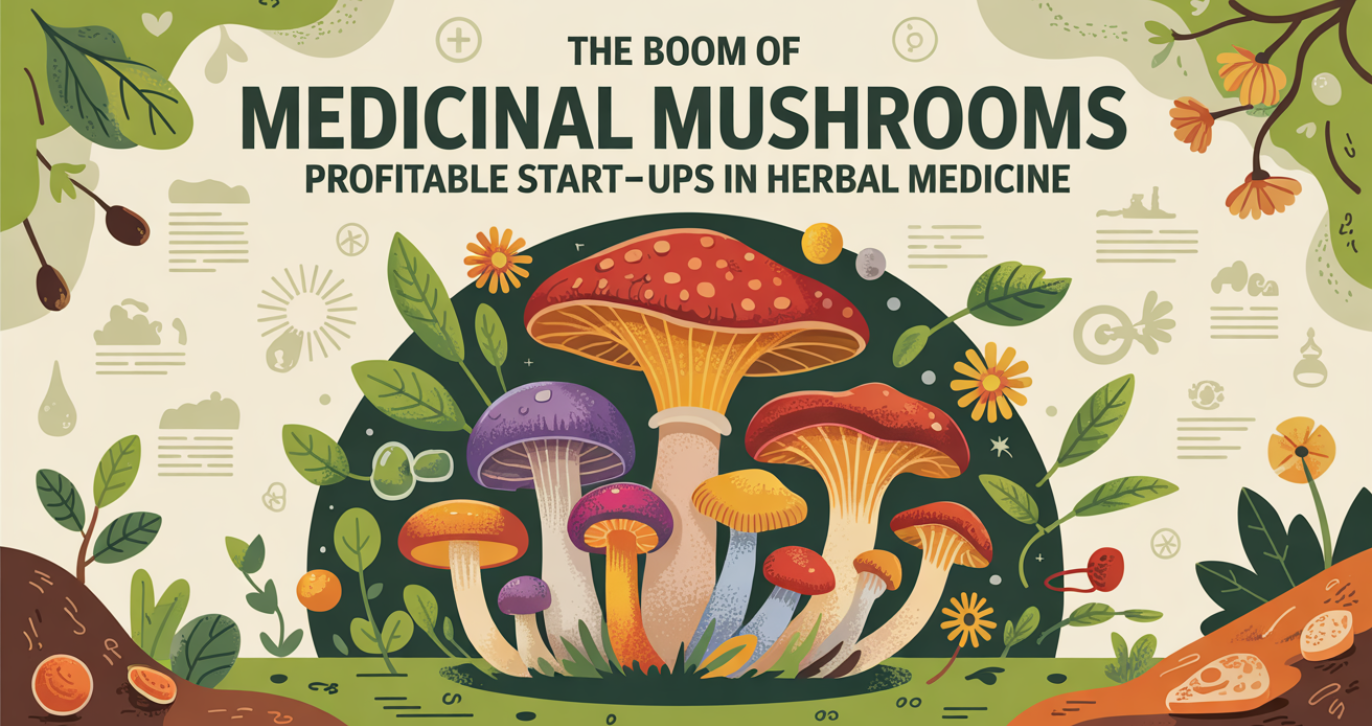Introduction
Complex NPK fertilizers act as vital components in contemporary agricultural practices. Plants require essential nutrients, which include nitrogen, phosphorus, and potassium, for healthy development, and these elements come from complex NPK fertilizers. The growing global demands in agriculture create a necessity for premium fertilizers, so production needs have risen accordingly. Business entrepreneurs find an attractive financial prospect in establishing operations in the complex NPK fertilizer industry due to this market expansion. Analyzing current market patterns and both production details and business management approaches enables successful business establishment with positive financial outcomes. Executing a complex NPK fertilizer business requires following the steps described in this article for successful development.
Market Overview
The worldwide complex NPK fertilizer industry maintains strong market expansion patterns. The growing human population has created increased food production requirements, which pushes fertilizer demand upward. Market reports show that NPK fertilizer sales will expand through a compound annual growth rate (CAGR) of 2.30% from 2024 to 2030. Farmers grasp NPK fertilizers as their key product because they provide efficient methods to boost both crop production and yield.
Since Asia-Pacific incorporates the biggest NPK fertilizer market share because it features substantial agricultural activities. PhosAgro and Agrium Inc., together with Israel Chemicals Limited, control the market through their extensive, high-quality fertilizer product ranges. Market growth continues to advance because of agricultural sector development, which makes this business venture exceptionally promising.
Why Start a Complex NPK Fertilizer Business?
Starting an NPK fertilizer business on a complex scale provides multiple attractive benefits. Modern agriculture depends entirely on fertilizers, yet the marketplace demands a greater supply of balanced nutrient compounds. This business provides exceptional profitability because farmers require increasing agricultural productivity each year.
Complex NPK fertilizer production follows an efficient cost structure for its manufacturing procedures. The raw materials—nitrogen, phosphorus, and potassium—are widely available. Business entrepreneurs need limited capital to establish production centers. This business proves to be both sustainable through consistent fertilizer sales and open to new product development prospects.
Steps to Start a Complex NPK Fertilizer Business
The establishment of a complex NPK fertilizer business follows specific planning stages before implementation. The following essential process will help establish a prosperous business venture.
1. Conduct Market Research
The process of launching your business needs extensive research about the market. Research domestic and global markets to inspect market requirements together with end-user choices. Research the NPK ratios that farmers use most often for different agricultural crops. Perform analyses of competitor prices beside market developments and customer requirements. Market studies generated through this research guide both market selection for your business and profit expectations.
2. Create a Business Plan
All business operations are built upon an in-depth business plan. Your business document should state company goals together with the production workflow and marketing approaches with financial planning. Your business plan must contain all initial capital expenditures and regular business payments, together with revenue prediction data. Through a complete business plan, you can steer your operations along with attracting investors who want to support your venture.
3. Choose a Suitable Location
Your business success depends heavily on choosing the correct site for your production operations. Set your production site where you can easily access your supply of raw materials and transportation routes. A complementary position in agricultural zones enables you to connect with your main customer groups. The facility should follow all environmental regulations and safety standards established by the local authorities.
4. Source Raw Materials
The manufacturing process of complex NPK fertilizers requires mainly three basic elements, which are nitrogen together with phosphorus and potassium. Raw materials for production appear as ammonia together with phosphoric acid and potassium chloride, among others. Secure trusted suppliers who deliver premium raw materials with cost-effective rates in a steady manner to you.
5. Set Up Production Facilities
The business needs to acquire specific machinery and equipment needed for fertilizer production operations. The fertilizer manufacturing process requires operators to blend raw materials, followed by pelletizing before drying the pellets, followed by packaging operations. Your business needs to select an appropriate production method between bulk blending and wet processing and the nitrophosphate process. Your company needs to enforce strict safety and hygiene measures that preserve the overall product quality.
6. Build a Distribution Network
Your business should construct a delivery distribution system to reach its customer base. Partner with agricultural cooperatives, retailers, and wholesalers. The business model of selling directly to farmers will help boost your profitability rate. Your business strategy should target building enduring partnerships between distributors and stakeholders from the agricultural sector.
7. Market Your Products
Success in business depends on successful marketing execution. Your company should create a powerful brand image to distribute products using media aligned with agriculture and using social media channels and trade exhibitions as promotional tools. Create educational resources that present the advantages of complex NPK fertilizers together with demonstration programs for stakeholders. Exceptional customer treatment strengthens both distributor relationships and client brand faithfulness.
Read More About :- Set up NPK Complex Organic Fertilizer Plant
Profitability of the Complex NPK Fertilizer Business
The NPK fertilizer market presents excellent opportunities for profitability because of multiple key benefits.
1. Constant Demand
Fertilizer market stability produces regular sales opportunities. Farmers who need NPK fertilizers get better yields combined with healthier results for their agricultural lands. The market demand for sustainable agriculture promotes appetite for balanced nutrient products.
2. Low Production Costs
The production of complex NPK fertilizers maintains affordability because of its economical manufacturing approach. Numerous sources make raw materials accessible for the NPK fertilizer manufacturing industry, and the production methods can readily adjust their volume. Modern technological investments help decrease production expenses as well as enhance operational efficiency.
3. High Profit Margins
The core necessity of fertilizers generates excellent profit opportunities. The expense of materials needed for production remains minimal when comparing it to the selling price of completed products. Companies that sell products in bulk quantities to major farming operations and distribution centers achieve higher profitable results.
4. Diversification Opportunities
Manufactured NPK product mixtures expand business operational reach. A business can serve multiple agricultural requirements because different crops need particular NPK ratio compositions. Your business should provide multiple versions of its products to increase your target market potential.
Challenges in the Complex NPK Fertilizer Business
The successful NPK fertilizer business has several hurdles to overcome despite financial gains.
1. Raw Material Price Fluctuations
Market situations influence the price stability of ammonia phosphate and potassium salts in the market. Your business can prevent such market risks through contracts that extend beyond normal time periods with suppliers and through multiple source locations.
2. Environmental Regulations
All manufacturing operations engaged in complex NPK fertilizer production need to observe environmental standards to reduce pollution levels. Fulfillment of all mandatory environmental and safety standards by your facility will help you avoid legal problems with accompanying penalties.
3. Market Competition
Many established organizations operate in the competitive fertilizer market. A distinctive brand emerges through giving top-caliber goods combined with superior client support along with creative solutions.
Conclusion
The NPK fertilizer business holds excellent opportunities for entrepreneurship. The business offers high profitability because the fertilizer market demands stability while production expenses remain affordable. Proper setup procedures will allow you to benefit from market expansion. Attention to both material price instability and environmental rules will help maintain business longevity.
Niir Project Consultancy Services provides expert guidance to venture into NPK fertilizer businesses through business plan preparation and feasibility report development services.
Introduction
Complex NPK fertilizers act as vital components in contemporary agricultural practices. Plants require essential nutrients, which include nitrogen, phosphorus, and potassium, for healthy development, and these elements come from complex NPK fertilizers. The growing global demands in agriculture create a necessity for premium fertilizers, so production needs have risen accordingly. Business entrepreneurs find an attractive financial prospect in establishing operations in the complex NPK fertilizer industry due to this market expansion. Analyzing current market patterns and both production details and business management approaches enables successful business establishment with positive financial outcomes. Executing a complex NPK fertilizer business requires following the steps described in this article for successful development.
Market Overview
The worldwide complex NPK fertilizer industry maintains strong market expansion patterns. The growing human population has created increased food production requirements, which pushes fertilizer demand upward. Market reports show that NPK fertilizer sales will expand through a compound annual growth rate (CAGR) of 2.30% from 2024 to 2030. Farmers grasp NPK fertilizers as their key product because they provide efficient methods to boost both crop production and yield.
Since Asia-Pacific incorporates the biggest NPK fertilizer market share because it features substantial agricultural activities. PhosAgro and Agrium Inc., together with Israel Chemicals Limited, control the market through their extensive, high-quality fertilizer product ranges. Market growth continues to advance because of agricultural sector development, which makes this business venture exceptionally promising.
Why Start a Complex NPK Fertilizer Business?
Starting an NPK fertilizer business on a complex scale provides multiple attractive benefits. Modern agriculture depends entirely on fertilizers, yet the marketplace demands a greater supply of balanced nutrient compounds. This business provides exceptional profitability because farmers require increasing agricultural productivity each year.
Complex NPK fertilizer production follows an efficient cost structure for its manufacturing procedures. The raw materials—nitrogen, phosphorus, and potassium—are widely available. Business entrepreneurs need limited capital to establish production centers. This business proves to be both sustainable through consistent fertilizer sales and open to new product development prospects.
Steps to Start a Complex NPK Fertilizer Business
The establishment of a complex NPK fertilizer business follows specific planning stages before implementation. The following essential process will help establish a prosperous business venture.
1. Conduct Market Research
The process of launching your business needs extensive research about the market. Research domestic and global markets to inspect market requirements together with end-user choices. Research the NPK ratios that farmers use most often for different agricultural crops. Perform analyses of competitor prices beside market developments and customer requirements. Market studies generated through this research guide both market selection for your business and profit expectations.
2. Create a Business Plan
All business operations are built upon an in-depth business plan. Your business document should state company goals together with the production workflow and marketing approaches with financial planning. Your business plan must contain all initial capital expenditures and regular business payments, together with revenue prediction data. Through a complete business plan, you can steer your operations along with attracting investors who want to support your venture.
3. Choose a Suitable Location
Your business success depends heavily on choosing the correct site for your production operations. Set your production site where you can easily access your supply of raw materials and transportation routes. A complementary position in agricultural zones enables you to connect with your main customer groups. The facility should follow all environmental regulations and safety standards established by the local authorities.
4. Source Raw Materials
The manufacturing process of complex NPK fertilizers requires mainly three basic elements, which are nitrogen together with phosphorus and potassium. Raw materials for production appear as ammonia together with phosphoric acid and potassium chloride, among others. Secure trusted suppliers who deliver premium raw materials with cost-effective rates in a steady manner to you.
5. Set Up Production Facilities
The business needs to acquire specific machinery and equipment needed for fertilizer production operations. The fertilizer manufacturing process requires operators to blend raw materials, followed by pelletizing before drying the pellets, followed by packaging operations. Your business needs to select an appropriate production method between bulk blending and wet processing and the nitrophosphate process. Your company needs to enforce strict safety and hygiene measures that preserve the overall product quality.
6. Build a Distribution Network
Your business should construct a delivery distribution system to reach its customer base. Partner with agricultural cooperatives, retailers, and wholesalers. The business model of selling directly to farmers will help boost your profitability rate. Your business strategy should target building enduring partnerships between distributors and stakeholders from the agricultural sector.
7. Market Your Products
Success in business depends on successful marketing execution. Your company should create a powerful brand image to distribute products using media aligned with agriculture and using social media channels and trade exhibitions as promotional tools. Create educational resources that present the advantages of complex NPK fertilizers together with demonstration programs for stakeholders. Exceptional customer treatment strengthens both distributor relationships and client brand faithfulness.
Read More About :- Set up NPK Complex Organic Fertilizer Plant
Profitability of the Complex NPK Fertilizer Business
The NPK fertilizer market presents excellent opportunities for profitability because of multiple key benefits.
1. Constant Demand
Fertilizer market stability produces regular sales opportunities. Farmers who need NPK fertilizers get better yields combined with healthier results for their agricultural lands. The market demand for sustainable agriculture promotes appetite for balanced nutrient products.
2. Low Production Costs
The production of complex NPK fertilizers maintains affordability because of its economical manufacturing approach. Numerous sources make raw materials accessible for the NPK fertilizer manufacturing industry, and the production methods can readily adjust their volume. Modern technological investments help decrease production expenses as well as enhance operational efficiency.
3. High Profit Margins
The core necessity of fertilizers generates excellent profit opportunities. The expense of materials needed for production remains minimal when comparing it to the selling price of completed products. Companies that sell products in bulk quantities to major farming operations and distribution centers achieve higher profitable results.
4. Diversification Opportunities
Manufactured NPK product mixtures expand business operational reach. A business can serve multiple agricultural requirements because different crops need particular NPK ratio compositions. Your business should provide multiple versions of its products to increase your target market potential.
Challenges in the Complex NPK Fertilizer Business
The successful NPK fertilizer business has several hurdles to overcome despite financial gains.
1. Raw Material Price Fluctuations
Market situations influence the price stability of ammonia phosphate and potassium salts in the market. Your business can prevent such market risks through contracts that extend beyond normal time periods with suppliers and through multiple source locations.
2. Environmental Regulations
All manufacturing operations engaged in complex NPK fertilizer production need to observe environmental standards to reduce pollution levels. Fulfillment of all mandatory environmental and safety standards by your facility will help you avoid legal problems with accompanying penalties.
3. Market Competition
Many established organizations operate in the competitive fertilizer market. A distinctive brand emerges through giving top-caliber goods combined with superior client support along with creative solutions.
Conclusion
The NPK fertilizer business holds excellent opportunities for entrepreneurship. The business offers high profitability because the fertilizer market demands stability while production expenses remain affordable. Proper setup procedures will allow you to benefit from market expansion. Attention to both material price instability and environmental rules will help maintain business longevity.
Niir Project Consultancy Services provides expert guidance to venture into NPK fertilizer businesses through business plan preparation and feasibility report development services.










